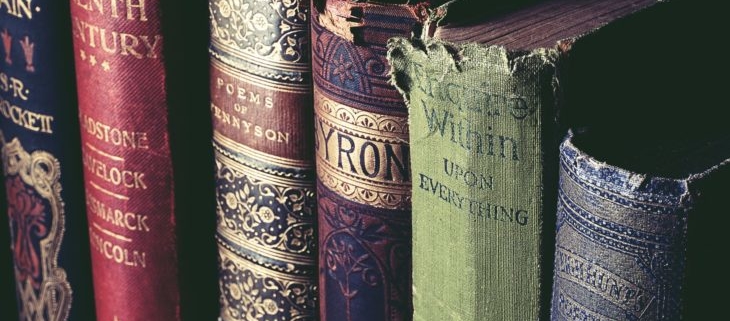10 Poems Everyone Should Learn by Heart
The world is so full of a number of things,
I’m sure we should all be as happy as kings.
Considering how much unhappiness there is in the world today, there might be a temptation to dismiss this poem and its ilk as an optimistic delusion. There is a sad tendency to view the world as a wasteland rather than a wonderland. This is, perhaps, one of the deepest errors of our time, the error of cynicism. What the world needs, what people need, what Catholics need, is a psychological and spiritual renewal: a renewal of politics, culture, parenthood, education… and poetry.
There is an old proverb that says if a person does not learn poetry as a child, they will not know how to pray as an adult. A more arresting thing could hardly be said, especially in an age where poetry is dead, either shrugged off with indifference or dismissed as unimportant.
Without doubt, the Church and the world need scientists and soldiers in the cultural and spiritual war zones to defend the Faith. But, in as much as civilization needs such professionals, so too does it need poets—and that for a very simple reason. Scientists without poetry can be slaves to systems. Soldiers without poetry can be barbarians devoid of chivalry. A people without poetry cannot be effective missionaries, because the charm of the Faith shines with poetry. Without poetry, without some knowledge or expression of Goodness, Truth, and Beauty, there is less hope of attaining the glorious end of martyrdom—whether through war, marriage, work, or any given Tuesday.
Poetry offers that knowledge and expression, and thus offers children a window to view and begin to understand a world so full of “a number of things.” Poems should be lifelong teachers and they should begin their lessons in the hearts of the young. Once there, they can give satisfying expression to those mysteries of childhood that are beyond a child’s ability to express. And in so doing, poetry can begin to introduce children not only to the outward world and inward emotions, but also to give all things their proper place and relation.
Perhaps the most significant obstacle to providing today’s children with the experience of poetry is that many of today’s parents and teachers have not had the experience of poetry themselves. (It is never too late to have the experience!) Poetry—that art which meditates on beauty, rest, perfection, and the grandeur of God’s presence in nature—is good for grown-ups too. No matter how old you are, or how busy you are, it is always important to be reminded of the beauty and mystery that transcends all our distractions. And this is especially so if you are a teacher.
If you never thought about the importance of poetry in education, do not, by any means, let this article convince you. Take the time to discover great poetry. Read Shelley, Keats, and Byron. Read Wordsworth and Poe. Read the Psalms. Read Homer, Virgil, Chaucer, Shakespeare, Milton, Coleridge, and Hopkins. Write your own book inscriptions and Christmas cards to your loved ones in verse. Allow yourself the opportunity to encounter and engage the kiss of beauty.
Immerse yourself. Engage the material. And, above all else, enjoy it.
No parent or teacher can give their child or student what they do not have. No pupil will take to heart what is brushed off as being unimportant by their parents or teachers. If parents and teachers want their children to pray, they must pray first. If parents and teachers want their children to be good, they must be good themselves. If parents and teachers do not read and savor the poetic works, neither will their children.
The first step to giving your children the gift of poetry is to love it yourself. Following are 10 excellent poems to begin with, to learn by heart and to teach the children you know to learn by heart. The rhythms of poetry reflect the rhythms of creation, of life, and the human heart. They put profundities in the mouths of babes, fortifying them for those times when, as adults, they will cry out from the depths. The power of beauty must not be lost. Like the coming of spring, the world will be saved by beauty, and a line of poetry may make all the difference in a person’s salvation. There is nothing like a poem held in the heart, like a fire in a hearth, to give the first and final context of earthly experience.
Memorize these 10 poems with your children or your students. They are not long or difficult. Neither does it take long, nor is it difficult to incorporate them at the beginning of a class, on a walk, in the car, or at table. Teach your young minds and hearts these poems and plant the power of poetry in their lives. These are only a beginning, but they are a good start.
- “Requiem” by Robert Louis Stevenson
- “My Heart Leaps Up” by William Wordsworth
- “To an Athlete Dying Young” by A. E. Housman
- “Sea Fever” by John Masefield
- “Nothing Gold Can Stay” by Robert Frost
- “The Destruction of Sennacherib” by Lord Byron
- “A Red, Red Rose” by Robert Burns
- “Concord Hymn” by Ralph Waldo Emerson
- “Winter” by William Shakespeare
- “Psalm 8”
SEAN FITZPATRICK is a graduate of Thomas Aquinas College and serves as the headmaster of Gregory the Great Academy in Elmhurst, Pa. He also serves on the Advisory Council for Sophia Institute for Teachers. His writings on education, literature and culture have appeared in Crisis Magazine, The Imaginative Conservative, and Catholic Exchange.

